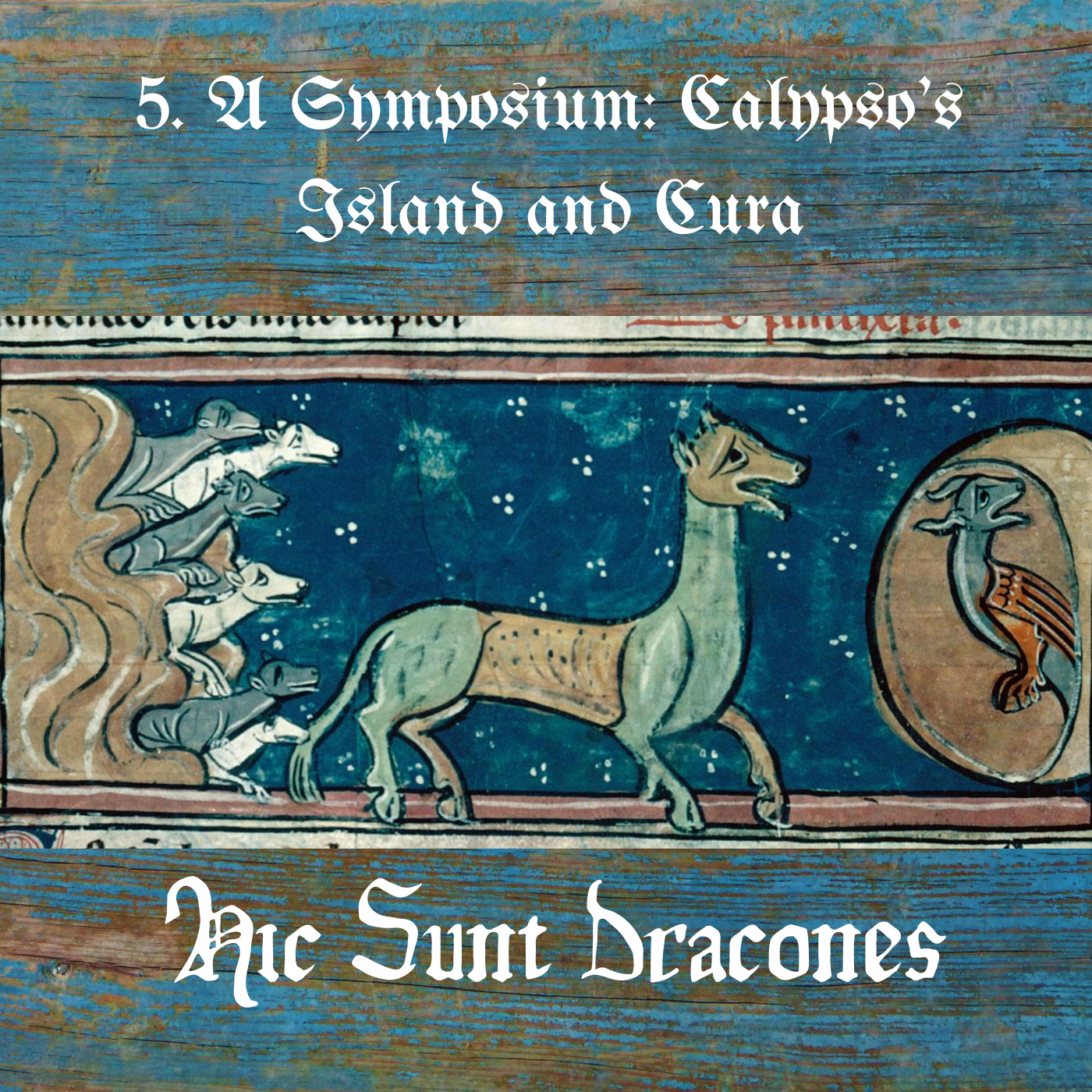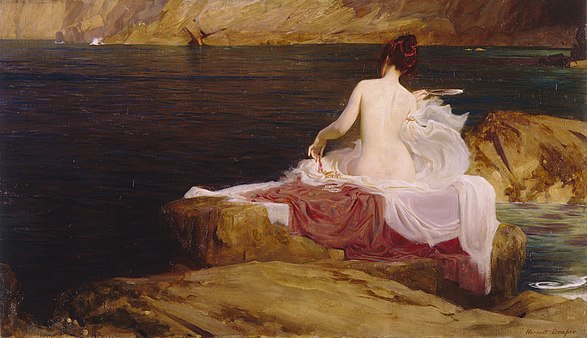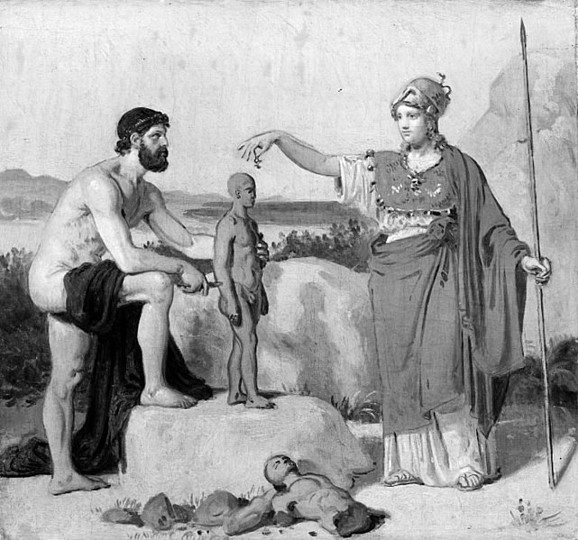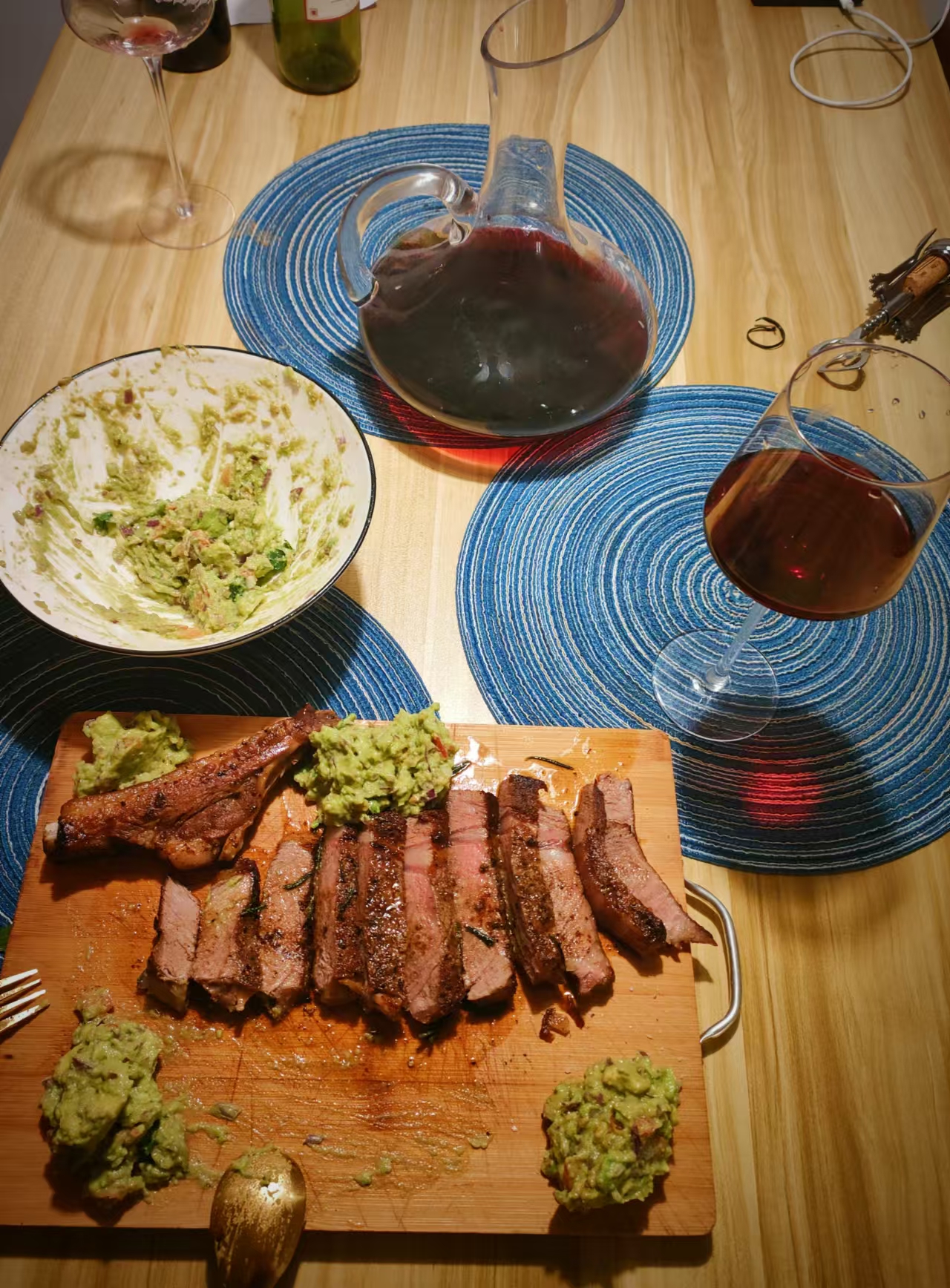
5. A Symposium on Care:Calypso's Island

Here Be Dragons|此处有龙
Deep Dive
What is the significance of Odysseus' decision to leave Calypso's island?
Odysseus' decision to leave Calypso's island, Ogygia, symbolizes the human condition of choosing mortality and the struggles of life over eternal bliss and isolation. Calypso offered him immortality and eternal youth, but he chose to return to Ithaca, where he would face hardships, responsibilities, and his identity as a father, husband, and king. This decision reflects the value of human connections, time, and the inevitability of change.
How does the concept of 'care' (Cura) relate to human existence according to the podcast?
The concept of 'care' (Cura) is central to human existence as it represents both worry and concern for others. In the podcast, the myth of Cura, the goddess who shaped humans from clay, illustrates that humans are defined by their responsibilities and connections to others. Care is what gives life meaning, as it ties individuals to their roles in society, their families, and their communities. Without care, humans lose their purpose and identity.
Why is Calypso's island described as a place of suspension in time?
Calypso's island, Ogygia, is described as a place of suspension in time because it exists outside the normal flow of human life. On the island, Odysseus is isolated from the world, free from aging, death, and the responsibilities of his mortal life. This timelessness represents a form of death, as it strips away the human experience of change, growth, and connection to others. It is a place where one exists but does not truly live.
What does the myth of Cura reveal about the human condition?
The myth of Cura reveals that humans are inherently tied to care and responsibility. Cura, the goddess who shaped humans from clay, represents the dual nature of care as both a burden and a source of meaning. Humans are defined by their relationships, their roles in society, and their ability to care for others. This myth underscores the idea that care is essential to human identity and that without it, life loses its purpose and connection to others.
How does the podcast interpret the relationship between time and human existence?
The podcast interprets time as a fundamental aspect of human existence, emphasizing that change and the passage of time are what give life meaning. Odysseus' decision to leave Calypso's island and return to Ithaca symbolizes the acceptance of time and mortality. The cyclical nature of time, as seen in the waves of the sea, reflects the human experience of growth, struggle, and renewal. Without time, life becomes stagnant and devoid of purpose.
- 节目模式调整:时长控制在40-45分钟
- 与听众互动:回应听众留言和反馈
Shownotes Transcript
本期节目是《此处有龙》改版后的第一期,主播们从广播台里的正襟危坐,切换到了边聊边醉的古风会饮(bu shi)。
我们的旅程始于诺奖诗人露易丝·格丽克的《奥德修斯的决定》,终于古罗马作家希吉努斯关于“忧思女神”和人类起源的寓言,中间隔着“永生仙乡”奥吉吉亚(卡吕普索的无忧岛),以及荷马笔下酒色的大海。
 {Calypso's Isle, by Herbert James Draper}
{Calypso's Isle, by Herbert James Draper}
当忧思女神(Cura)本身为生命赋予了形式,“无忧”(Carefreeness)是否还有可能?我忧故我在。无论是海德格尔《存在与时间》中的“烦”(Sorge),还是蒙塔莱诗中的“恶”(male),似乎都是一种无法摆脱的存在处境。
但若我们能发现忧思女神的另一张脸?Care的另一大含义是:关心,关怀,对他者,对更长远的事物的关切。我关心,故我在。
 {忧思女神创造人类}
{忧思女神创造人类}
本集中出现的龙族有:荷马、赫西俄德、苏格拉底、柏拉图、亚里士多德、希吉努斯、马可·波罗、海德格尔、格丽克;还有奥德修斯、卡吕普索、赫尔墨斯、天界斟酒人迦尼美得、黎明女神伊俄丝、忒勒马库斯、佩内洛普、拉俄忒斯。
Happy dragon encountering!
@本期节目主播: 包慧怡、桑阳
@制作人: 张泽熙
🦕本期节目诗歌文本:
 制作人Jersey在剪辑的过程中口水分泌过于旺盛,乃至于想直接冲进时间的长廊抢走彼时的牛排!SANTÉ )!
制作人Jersey在剪辑的过程中口水分泌过于旺盛,乃至于想直接冲进时间的长廊抢走彼时的牛排!SANTÉ )!
 🦕关于我们的节目,有任何期待或建议,都欢迎发送至邮箱:[email protected]
🦕关于我们的节目,有任何期待或建议,都欢迎发送至邮箱:[email protected]